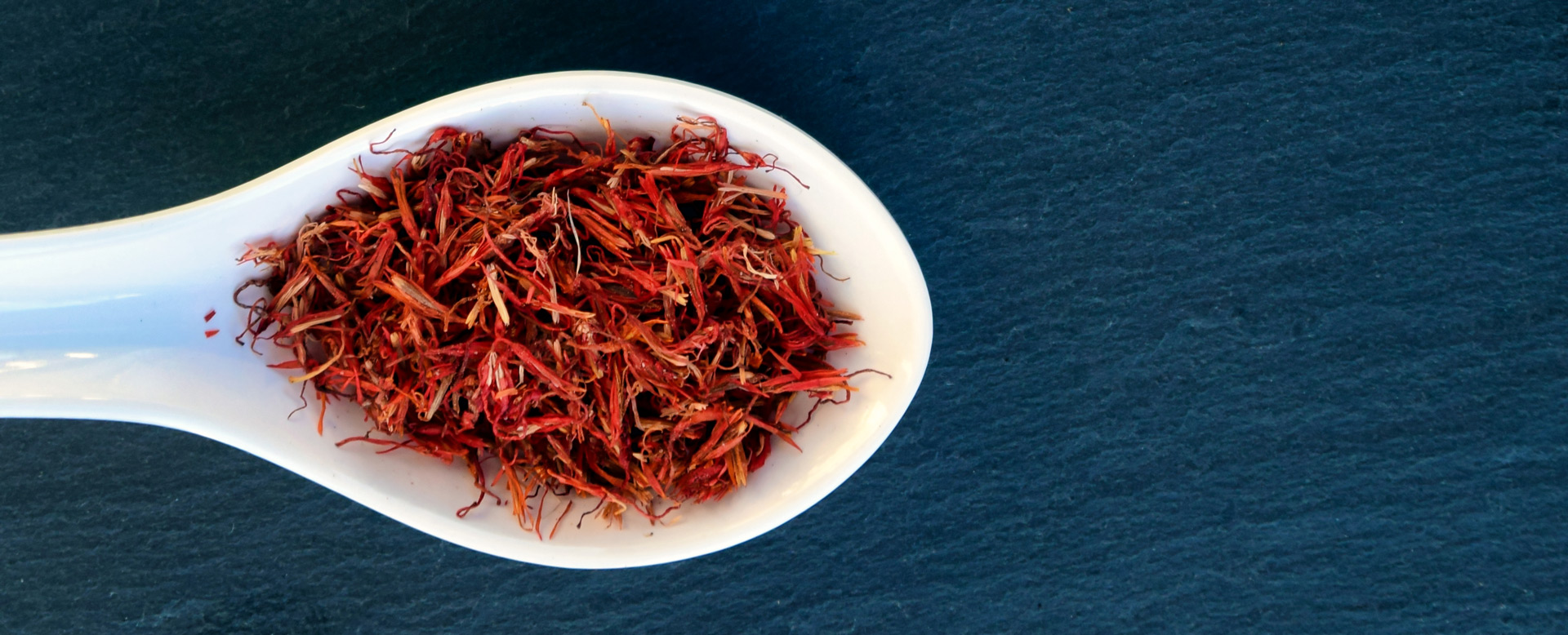Saffron, a spice derived from the dried stigmas of Crocus sativus, has now undergone several trials examining its antidepressant effects and, in a recent meta-analysis, was confirmed to be effective for the treatment of major depression. Most of the research has been conducted in Iran, where saffron is massively cultivated. Saffron is one of the top three most expensive spices (in addition to vanilla and cardamom). Nevertheless, the relatively small dose needed to achieve antidepressant effects makes it a promising complementary medicine along with psychotherapy.
In placebo-comparison trials, saffron has shown large treatment effects and, when compared with antidepressant medications such as fluoxetine, imipramine and citalopram, has similar antidepressant efficacy but with fewer reported side effects.
The antidepressant effects of saffron are potentially due to its serotonergic, antioxidant, anti-inflammatory, neuro-endocrine and neuroprotective effects. Three secondary metabolites (crocin, picrocrocin, and safranal) in saffron prevent the reuptake of serotonin, dopamine and norepinephrine. Crocin is a water-soluble compound and safranal is a fat-soluble substance. They may act by two different mechanisms and work synergistically to reduce depression.
Beneficial effects of saffron on depression have been demonstrated in diverse cohorts, including adults, adolescents, metabolic syndrome, hyper-homocysteinemia, post-partum mothers, fluoxetine-induced sexual dysfunction in men and women, and patients undergoing coronary artery bypass grafting.
In the current clinical trial, the effect of saffron on depression was evaluated in recovered consumers of methamphetamine living with HIV/AIDS. This population is at high risk for relapse of methamphetamine use due to persistent depression. Living with HIV/AIDS confers an additional 15-40% increased risk of depression. If saffron can be helpful in this population, it is a very good test of its efficacy. A total of 112 recovered methamphetamine abusers, living with HIV/AIDS, were enrolled at the Positive Club, which provides pharmaceutical, psychological and supportive services for people living with HIV/AIDS in Mashhad, Iran. Based on clinical interview, inclusion criteria and other assessments, only 62 people were eligible to participate. They were randomized to saffron (two “15 g” capsules daily for 8 weeks) and placebo. Urine drug tests and pill counts were taken weekly to measure compliance.
Pre- and post-test Beck Depression Inventory showed that saffron was effective in reducing depression among the experimental group from 30.13 to 21.41 (p<0.05), compared to virtually no change in placebo: 29.82 to 29.50. Limitations were small sample size, short time frame, and lack of clarity of the true dose of saffron (most other studies used 30-60 mg daily and this paper states “15 g” capsules twice daily, which may be a misprint in the publication).
Research conducted so far provides initial support for the use of saffron for the treatment of mild-to-moderate depression in diverse clinical contexts. Further research is needed, with robust numbers of participants and high-quality methods, and in other countries besides Iran, to further elucidate the mechanism and efficacy of saffron for major depressive disorder.
Reference
Jalali, F., and Hashemi, S.F. Substance Use and Abuse. 2018. 53(12): 1951-1957.


